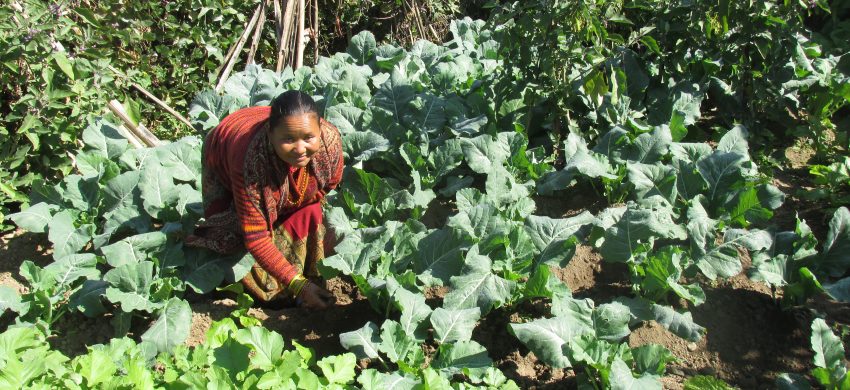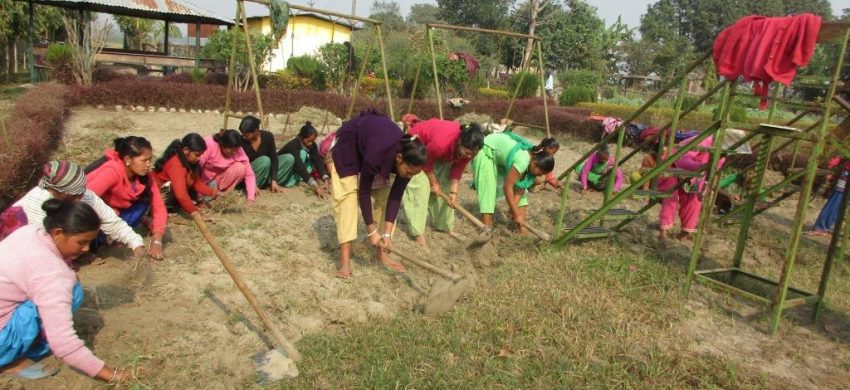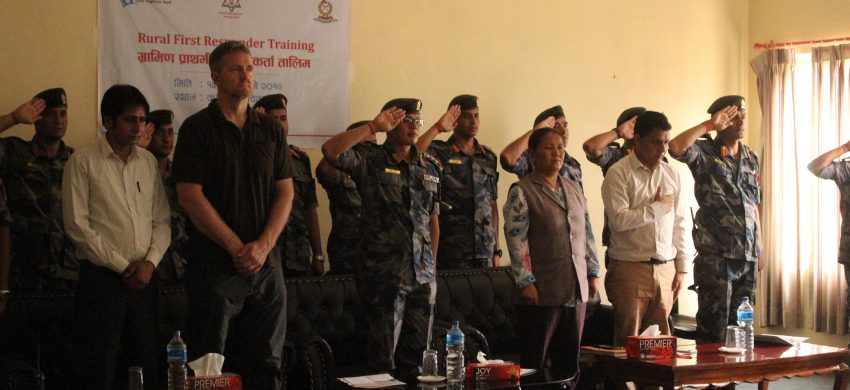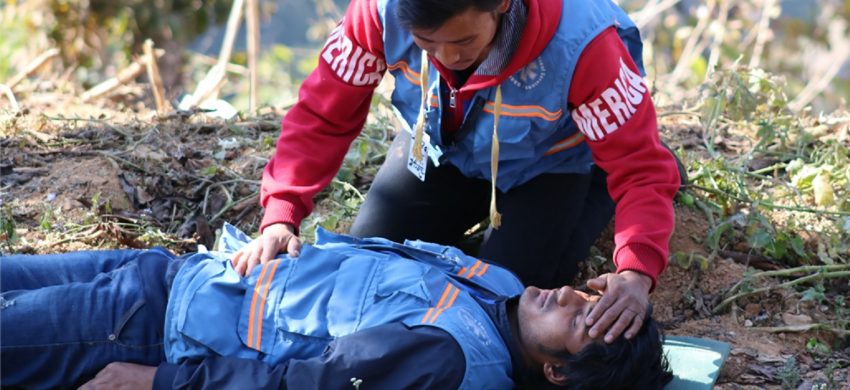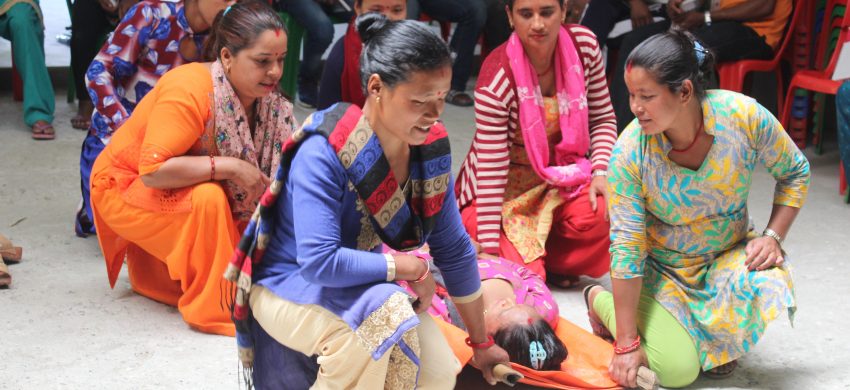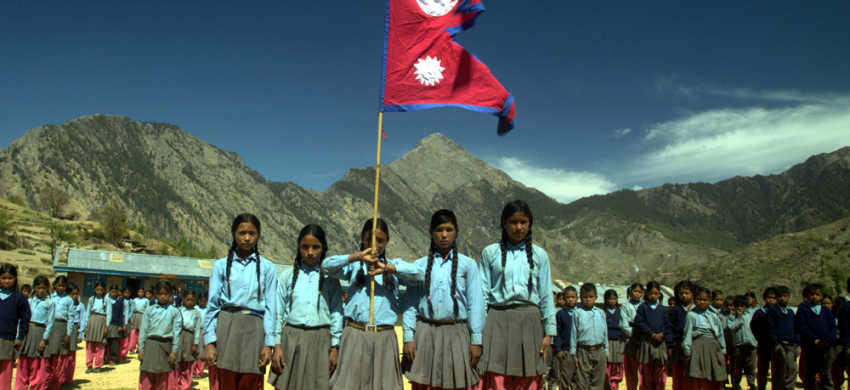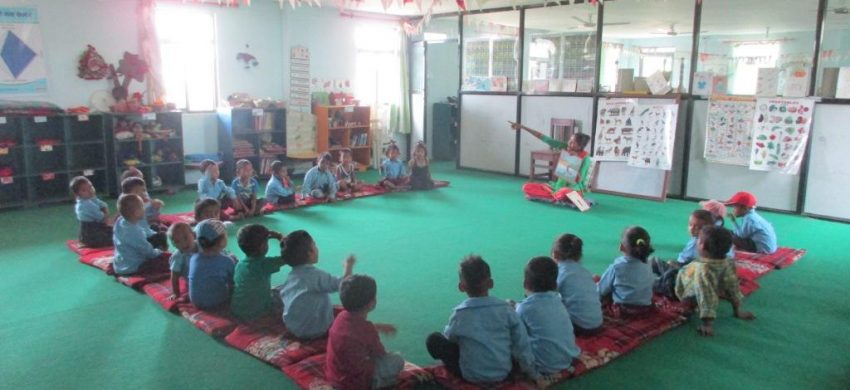Ashal Chhimeki Nepal-ACN (Good Neighbors Nepal-GNN) is a non-government organization, established in 2002 at Kathmandu, Nepal with the aim of transforming the community for the sustainable development holistically. The major areas of interventions are education, health, sanitation & WASH, income generations & vocational education, network building and partnerships, emergency response, and advocacy.
Nepal still remains one of the poorest countries in the world where 25% of the people are living on less than 100 Rupees (less than $1) a day. It is the poor who are left susceptible to disease, poor education quality and improper health facilities to answer to their needs. Hence, GNN seeks to work on supporting marginalized people in the overall community development. In addition to this, GNN also provides relief support during natural disasters such as the recent earthquake we faced in 2015. The projects are designed on need based principle outlined by the target group/community. GNN provides its technical, managerial and financial support under its direct planning, monitoring and supervision with the approval or agreement of the government of Nepal.
Currently, GNN manages two community Mom Centers in Kailali and Bardiya Districts as well as a Rural First Responding-RFR Training Program in Dhading, Kailali and Bardiya Districts. With regard to the education component of the organisation, there is Early Child Development-ECD program with public library facility run in the mom center. GNN also has been operating Open Defecation Free (ODF) program as part of its advocacy and awareness component in Morang district from last year. Yet, the program is in the wrap up situation, GNN is coordinating with UNHabitat for the Post-ODF program for continuing advocacy and awareness establishment in that of community. Good Neighbors Nepal implemented the Livelihood Rehabilitation Program by the partnership of World Vision International (WVI) Nepal. WVI also has funded in Urban Agriculture and Economic Development for targeting to value chain promotion of the urban product along with wastage management in Kritipur Municipality.
The vision, mission, goal and objectives of GNN are as follows:
Vision
To see the people’s livelihoods improved through microenterprises, commercialization of the subsistence agriculture, and practical solutions to the social challenges of disadvantaged and deprived communities.
Mission
Transforming the target communities by ensuring an effective community development process.
Goals
» To facilitate the practical solution to uplift the backwardness of society along with facing the social challenges
» To transform the community with improved livelihood condition based on the holistic community development approach
» To facilitate the practical solution to uplift the backwardness of society along with facing the social challenges
» Providing the formal and non-formal education along with skilled training, vocational training, and arts for the needy community for developing the skilled and civilized society for ensuring the self-reliant community.
» Establishing the care centers for the helpless, physically disable, old aged people with the livelihood based skilled training for self-reliant development.
» Conducting the advocacy-related activities along with medical camp and required materials support to health institutions.
» Supporting on agriculture, and forestry with the community development approach along with community infra support and relief support in emergency
» Coordinating and collaborating with the national and international like-minded agencies for the achievement of the common goals and objectives.
The pattern and process in which households raise up their children are directly associated with the community context where they practice, learn and engage in the rendering and reproduction of the culture, language and livelihoods of individual households and the community as a whole. Thus, the community then becomes a provider of a platform for the children to find their life sustained and secured. In this sense, a community shapes and saves the future of the children or its own future generations.
For raising and protecting a child in the household, the household and community need to be well-equipped with such basic requirements as health, water and sanitation, vocational training for the youths, income generation related activities, advocacy, network and partnership with neighboring communities for sharing and gaining useful experiences, knowledge, skills, ideas and information.
In recognition of the above facts in reality, GNN realized that a child and his/her household constitute the core and critical area for community development-related interventions. It was in this context that GNN proposed, practiced and promoted the Community Development Project (CDP) concept with the main intent and anticipation to target needy communities through holistic development approaches. Besides, GNN also envisages and aims especially to ensure the protection of children at risk. To attain this aim, GNN supports the targeted households and communities by all practically possible means and methods. This is again for the reason that a household is the first natural school for a child and that if risk-prone households are provided with income-generating opportunities they could be empowered through their productive engagements including their contribution to the establishment of children's rights to life, protection, participation and all-round and sustained growth and development.
GNN has basically been adopting two developmental modalities in the country: (i) Urban Community Development (UCD) that covers urban peripheries; and (ii) Rural Community Development (RCD) that focuses on the countryside with communities living in remote and scattered settlements and dwellings. GNN has adopted the community development project (CDP) concept in anticipation of targeting communities to attain holistic development impacts. The Community Development Committee (CDC) of the organization is the primary decision-making body for any developmental activities at the field level. GNN aims chiefly at protecting the risk-prone children, and the households in the CDP-covered communities have supported this focus in all possible ways. As the approval and support of the national government is also essential in this kind of project intervention, GNN has adopted a 3-S strategy embracing Sarkar (= the government); Samudaya (= the community); and the Sanstha (= the organization, i.e., the GNN).
